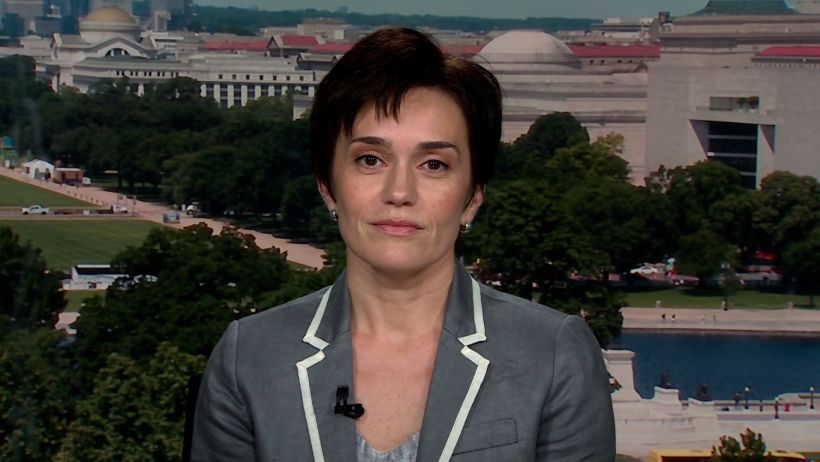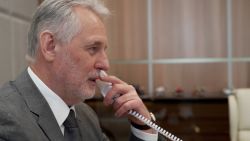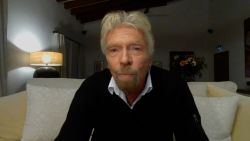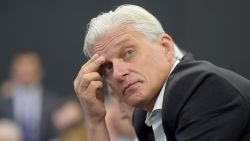Editor’s Note: Børge Brende is president of the World Economic Forum. The opinions expressed in this commentary are his own.

The war in Ukraine, a challenging economic outlook, rising global temperatures and a once-in-a-century pandemic: These are more than a series of distinct crises. They amount to what appears to be the onset of a new global era — one that many fear will be defined by greater fracture and strife.
Indeed, for the past several years, global competition appears to have outpaced cooperation. For instance, in the face of rising global temperatures, several governments have looked not to double down on climate action, but to exploit newly accessible natural resources for strategic advantage. At the same time, longstanding institutions of cooperation, such as the trade system, have been used to punish rivals, with tariffs increasing after a long period of decline.
Rebuilding cooperation after years of erosion requires focusing on what has proven to work. During our current period of upheaval and discord, we must reaffirm and strengthen mechanisms of cooperation, because history has shown it is the only way to address our most urgent priorities.
There are a few places to start:
Inclusive cooperation
For the first quarter century after the end of the Cold War, leaders may not have seen eye to eye on a host of issues — and there were certainly moments of sharp disagreement — but by and large, there was agreement on the underlying rules guiding global relations.
The creation of the World Trade Organization in 1995 and China’s entry into it in 2001 were milestones of this period, illustrative of the larger, cooperative fabric that bound the global landscape and prevented major conflict. The 2015 Paris Agreement, in which 196 parties agreed to far-reaching climate commitments, was arguably a capstone of this cooperation.
The issues confronting the world today — rebuilding our economies, ending the pandemic and meeting climate obligations — are too complex for one party to address on its own. We need business, government, international organizations and civil society to be part of the solutions.
Thankfully, we are seeing this in action. One example has been the increasing number of companies that are practicing stakeholder capitalism — a model that looks to advance not just profit, but the interests of people and our planet. It is why the last UN Climate Change Conference in Glasgow (COP26) saw a considerable level of participation by the private sector. And the public and private sectors, along with international organizations, have also been working hand in hand to address the humanitarian crisis from the war in Ukraine.
Common purpose
Second, cooperation needs to be underpinned by a sense of common purpose that binds stakeholders together. At its most effective, it should include focus and alignment on achieving specific priorities.
This is a model that the EDISON Alliance, a public-private-sector platform for digital inclusion that the World Economic Forum launched last year, is using to mobilize leading technology companies alongside government to expand digital access for one billion people globally by 2025. This ambitious goal is only possible because each partner is focused on the specific mission.
Conversation
Finally, we need conversation. One of the biggest diplomatic coups of the past half-century was the Camp David Accords, which established peace between Israel and Egypt. The agreement was the result of US President Jimmy Carter bringing Egyptian President Anwar Sadat and Israeli Prime Minister Menachem Begin together for 13 days of negotiations.
During the COP26 climate conference this past November, the United States and China released a statement pledging “firm commitment to work together” to achieve climate goals. The affirmation was largely the result of face-to-face meetings between their climate envoys.
The pandemic has thrown many things into stark relief, none more so than the benefit of dialogue, when health protocols allow. A lot can be achieved virtually, but for all its benefits, the digital world does not lend itself to sparking new ideas or forging deep connections.
This is why next week, the World Economic Forum will hold its first in-person annual meeting in Davos in more than two years. The meeting will bring together a diverse group of people — leaders from business, government, international organizations and civil society, along with experts, youth activists and luminaries in the arts — at the very moment when re-forging inclusive, purpose-driven partnerships is so vital.
The hope is that by reaffirming and strengthening foundations of cooperation, the next page in history can turn toward cooperation and security rather than conflict and strife.





















